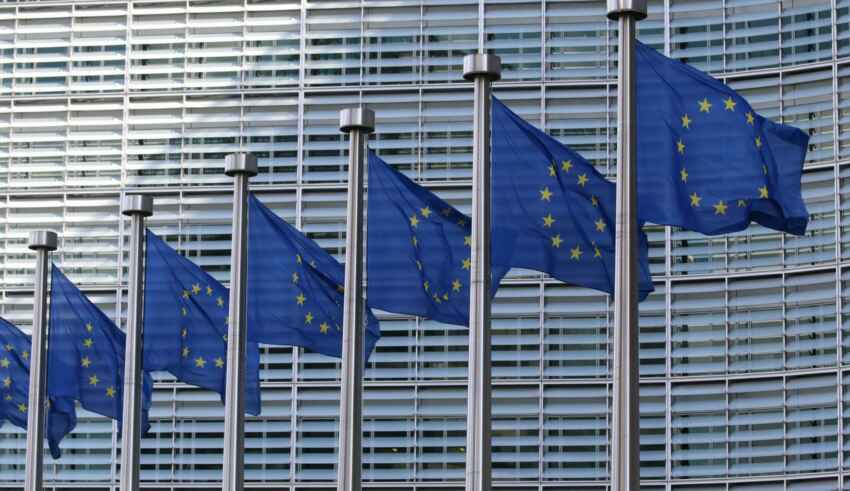
The European continent has witnessed a significant number of “transboundary crises” such as the 9/11 terrorist attacks, the SARS and Avian flu in 2003, the global financial crisis of 2008, migration crisis of 2015 or the recent covid-19 pandemic… The purpose of this article is to understand the existence of agencies and analyze the criteria put in place to guarantee that EU agencies produce policies that benefit European citizens.
These crises transcend geographical borders and affect numerous political sectors, and national governments struggle to cope with these situations on their own. It is in this context when international cooperation becomes increasingly important, however it is uncertain which form or structure this form of cooperation should adopt. As a response to these crises, the EU and its member states have begun to build “European” capability to combat these challenges. In this sense, ambitious policy statements, strategy papers, action plans, and legislative packages have been released, existing institutional structures and arrangements have been altered, and new tools and processes have been implemented. Furthermore, various crises-related bodies such as the European Food Safety Authority, the European Maritime Safety Agency, and, most recently, three European financial supervisory authorities, have been developed to deal with these events. These examples demonstrate how EU agencies, created in the wake of these cross-border crises, are more crucial in formulating European policy as responses to these events that the EU faces. Besides, these bodies can also be used as a tool to prevent future events (Kaeding, 2020).
This means that the EU has lived an agentification trend since 1990s the number of agencies created has increased to solve the arisen issues and conflicts. The creation of agencies also implies that Europe is becoming more salient to citizens, when you have a crisis you give more power to the EU, and this is a way for citizens to be more connected to the EU as there is a physical presence of the EU in your country.
EU agencies play a crucial role in bringing together diverse Member State interests to find shared policy solutions for the EU. However, the size of their management boards and differences in management board members’ and the understanding of their roles may impede effective decision-making (European Court of auditors, 2020). In this sense, EU agencies are playing an increasingly important role in the Union, but their role in effectively serving EU citizens needs to be evaluated more carefully. In this sense, it is important to consider aspects that these agencies should improve such as: ensuring the relevance, coherence, and flexibility of the agency’s organization, enhance governance, accountability, and performance reporting, more flexible allocation of resources and the strengthening of the function of agencies as centers of expertise and networking (Kaeding, 2020). Despite these agencies are located in member states, in practice, their performance in the management of information has not been appropriately connected to their contribution to policy, which makes it difficult to hold decision-makers responsible (European Court of Auditors, 2022). Therefore, they should enhance the way they report on performance in practice, by linking more clearly their performance with their contribution to EU policies to directly address the concerned issues.
It is also needed by part of the European Commission to monitor the implementation of the Commission guidelines (C (2020)2297) for the improvement of the performance information that agencies must submit for external inspection by the European Parliament, the Council, and EU citizens. Besides, the Commission could suggest the legislator to reassess the size of the management boards needed to increase decision-making efficiency (European Court of Auditors, 2022).
Assessing how EU agencies can contribute more effectively to EU policies is crucial for the future of Europe, because Europe depends on EU agencies more than ever, especially in times of crisis (Kaeding, 2020).
References
Kaeding, M. (2020). More important than ever-EU agencies in times of crisis. EU agencies in time of crises. https://www.eipa.eu/publications/briefing/more-important-than-ever-eu-agencies-in-times-of-crisis/
European Court of Auditors (2020). Future of EU agencies – Potential for more flexibility and cooperation. Special report. Retrieved from: https://op.europa.eu/webpub/eca/special-reports/agencies-performance-audit-22-2020/en/
European Council and Council of the EU (2022). How EU responds to crises and build resilience. Retrieved from: https://www.consilium.europa.eu/en/policies/eu-crisis-response-resilience/
Jordana, J & Triviño Salazar, J.C. The coordinating role of EU agencies in transboundary crisis management. Universitat Pompeu Fabra. Retrieved from: https://ecpr.eu/Events/Event/PaperDetails/29349
By The European Institute for International Law and International Relations.














